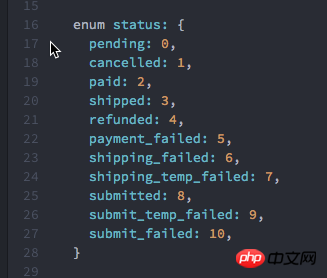REST 设计困惑?Mysql 是直接存字符串好还是数字好?
现在正在做 REST API 的设计,在设计过程中遇到了一些困惑,问题是这样的:
比如我有一个订单表
| order_id | products | status |
|---|---|---|
| 1 | 笔记本电脑 | canceled |
| 2 | 华为手机 | finished |
| 3 | 小米手环 | delivering |
获取所有订单的接口设计如下,其中有一个可选参数是 status 可选值为 canceled、finished、delivering 。
GET /order?status=canceled //已取消的订单
GET /order?status=finished//已结束的订单
GET /order?status=delivering //配送中的订单
这样设计API,可读性还是很好的。但对这里的 status 字段有一些疑问,该字段在数据库中,是直接存储为字符串?还是存储为数字?
由于需要保证API可读性好,所以如果用 数字来存储 status ,那么就需要管理字符串与数字之间的对应关系。
比如说:canceled => 0、finished => 1, delivering => 2
但是这样子,就需要在程序上,对status做一些转换,会无形增加一些程序的复杂性。
我的问题是:能不能直接把 status 字段直接存储为字符型?,就像上面的设计一样。如果数据量大会不会造成性能问题?或者其他一些问题? 谢谢!
